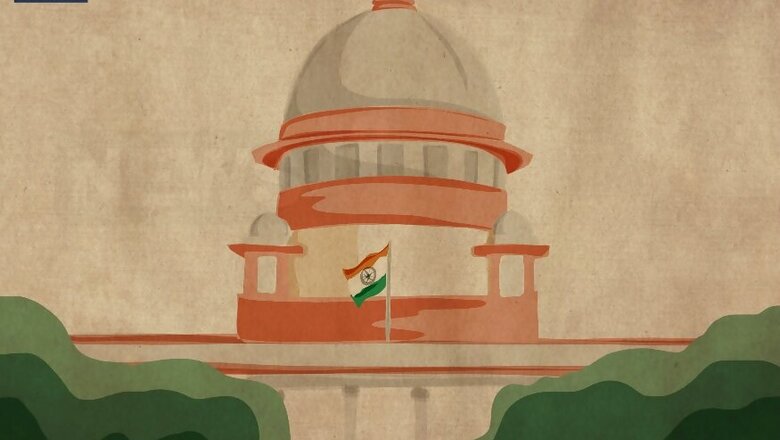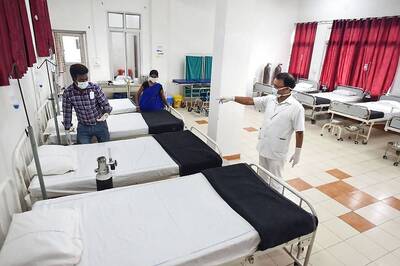
views
New Delhi: On the second day of daily hearings in the Ayodhya case, Hindu body Nirmohi Akhara told the Supreme Court it had no documentary proof to establish its claim of ownership over the Ram Janmabhoomi-Babri Masjid disputed site.
A five judge Constitution bench headed by Chief Justice Ranjan Gogoi asked senior advocate Sushil Jain, representing Nirmohi Akhara, that since it was now dealing with the issue of possession, the Hindu body will have to "establish" its case.
“Do you have oral or documentary proof, revenue records of the possession of Ramjanmabhoomi before attachment,” the top court asked during the hearing.
“A dacoity happened in 1982 and we lost records,” the Akhara replied to the five-judge bench’s query.
The Akhara has been seeking management and proprietary rights over the disputed site on various grounds including that it was under its possession since time immemorial and it has the status of 'shebaitship' of the deity.
"Apart from the revenue records, what are the evidence to show and how did you exercise the right of 'shebaitship'," the bench, also comprising Justices S A Bobde, D Y Chandrachud, Ashok Bhushan and S A Nazeer, asked Jain and added, "you have to establish your case."
Nirmohi Akhara then sought some more time to adduce some documents on claims of its possession of the site as Justice DY Chandrachud asked for a tabulated chart as well.
The body had on Tuesday strongly pitched in the Supreme Court for control and management of the entire disputed 2.77-acre land, saying Muslims had not been allowed to enter the place since 1934.
The Hindu body had said it was claiming ownership and possession of the "main temple" as also to be the manager of the birth place of Lord Rama.
The top court was told by the Hindu body that since time immemorial "Janma Asthan now commonly known as Janam Bhumi, the birth place of Lord Ram Chandra was belonging to and in possession of the Akhara".
Referring to the records, Jain had said, "No Mohammedan could or ever did enter the temple building. It was specifically stated that no Mohammedan has even attempted to enter it at least since 1934" and hence the claim of Akharara over the land was legal and should be honoured.
The court is hearing 14 appeals filed against the 2010 Allahabad High Court judgment, delivered in four civil suits, that the 2.77-acre land in Ayodhya be partitioned equally among the three parties — the Sunni Waqf Board, the Nirmohi Akhara and Ram Lalla.

















Comments
0 comment